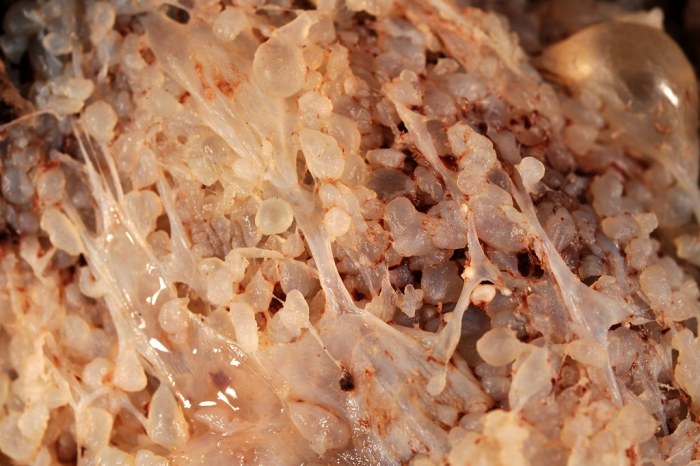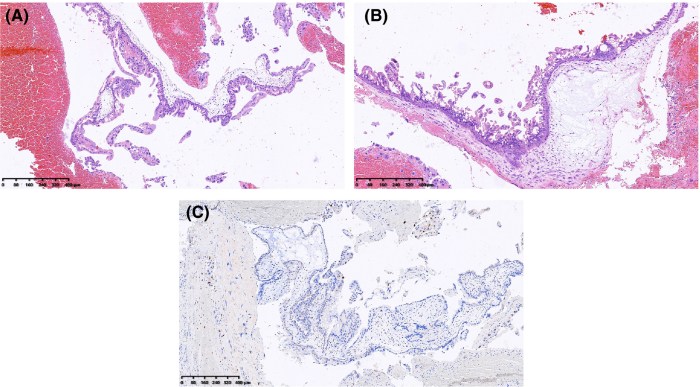Hysterotomy for hydatidiform mole and tubal ligation cpt code – Hysterotomy for hydatidiform mole and tubal ligation are surgical procedures with distinct indications, risks, and CPT coding requirements. This article provides a comprehensive overview of these procedures, comparing their indications, contraindications, complications, and recovery outcomes. It also includes patient education materials and a discussion of documentation requirements for CPT codes.
Hysterotomy for Hydatidiform Mole
Hysterotomy is a surgical procedure to remove a hydatidiform mole, a non-cancerous growth that develops in the uterus during pregnancy.
Indications
- Complete molar pregnancy: All fetal tissue has been replaced by hydatidiform tissue.
- Partial molar pregnancy: Some fetal tissue is present along with hydatidiform tissue.
- Persistent trophoblastic disease (PTD): Hydatidiform tissue remains after a previous pregnancy.
Contraindications, Hysterotomy for hydatidiform mole and tubal ligation cpt code
- Active infection
- Severe anemia
- Preeclampsia or eclampsia
Risks and Complications
- Bleeding
- Infection
- Uterine perforation
- Damage to the cervix
- Patient’s age and parity
- Type of tubal ligation procedure performed
- Anesthesia used
- Complications, if any
- What is a hydatidiform mole?
- What are the symptoms of a hydatidiform mole?
- How is a hydatidiform mole diagnosed?
- What are the treatment options for a hydatidiform mole?
- What are the risks and benefits of hysterotomy?
- Do you have any questions about the procedure?
- Do you understand the risks and benefits of the procedure?
- Do you have any other medical conditions that could affect the procedure?
- Are you currently taking any medications?
- Do you have any allergies?
Tubal Ligation CPT Code

The CPT code for tubal ligation is 58600.
Types of Tubal Ligation Procedures and CPT Codes
| Procedure | CPT Code |
|---|---|
| Bilateral tubal ligation, laparoscopic | 58600 |
| Bilateral tubal ligation, minilaparotomy | 58601 |
| Bilateral tubal ligation, vaginal | 58602 |
Documentation Requirements
Comparison of Hysterotomy and Tubal Ligation

Indications
Hysterotomy is indicated for the removal of a hydatidiform mole, while tubal ligation is a sterilization procedure to prevent future pregnancies.
Contraindications, Hysterotomy for hydatidiform mole and tubal ligation cpt code
Both hysterotomy and tubal ligation have similar contraindications, including active infection, severe anemia, and preeclampsia or eclampsia.
Risks and Complications
Hysterotomy carries a higher risk of complications than tubal ligation, including bleeding, infection, uterine perforation, and damage to the cervix.
Recovery Time and Long-Term Outcomes
Hysterotomy typically requires a longer recovery time than tubal ligation, and patients may experience some discomfort and cramping after the procedure. Tubal ligation is a permanent sterilization procedure, and patients should be aware of the long-term implications before undergoing the surgery.
Patient Education and Counseling: Hysterotomy For Hydatidiform Mole And Tubal Ligation Cpt Code

Patient Education Handout on Hysterotomy for Hydatidiform Mole
A patient education handout on hysterotomy for hydatidiform mole should include the following information:
Table Summarizing the CPT Codes for Different Types of Tubal Ligation Procedures
| Procedure | CPT Code |
|---|---|
| Bilateral tubal ligation, laparoscopic | 58600 |
| Bilateral tubal ligation, minilaparotomy | 58601 |
| Bilateral tubal ligation, vaginal | 58602 |
Questions to Ask Patients Before Performing Hysterotomy or Tubal Ligation
Helpful Answers
What is the CPT code for hysterotomy for hydatidiform mole?
59150
What is the CPT code for bilateral tubal ligation?
58600
What are the contraindications for hysterotomy?
Active infection, severe anemia, or uncontrolled bleeding disorders
What are the risks of tubal ligation?
Bleeding, infection, damage to surrounding organs, and ectopic pregnancy